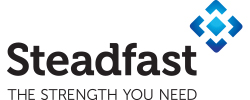Generally, Professional indemnity or PI insurance policies are not associated with hospitality businesses in Australia. However, there are times when it should be part of your insurance program.
So, what is PI insurance, and why do you need it?
PI insurance is a specific cover designed to protect an individual, organisation or business providing professional advice or services to a third party, especially for payment.
The PI insurance policy provides the financial resources to cover claims. It sets out the maximum the insurer will pay out. Importantly, it’s for claims made against your business because of an error or omission in your advice or services that cause a customer or third party to suffer a financial loss.
Therefore, a hospitality business will need PI insurance if it engages in other revenue streams that include advice or services for a fee, such as offering formal training or contractually managing other venues.
Seeking professional risk and insurance advice is critical to help you decide whether you need the policy and to ensure the policy amounts cover your business risk.
Here are five factors that may determine the maximum amounts specified in the PI policy and the premiums you pay:
1. Type of Professional Advice & Company Income
Different types of advice and services generate different levels of risk exposure. Therefore, your level of risk exposure depends on the kind of service and advice you provide. As such, it’s essential to understand where and how claims may arise from your specific type of advice or service.
Secondly, your company income affects your level of risk exposure. When your business generates a high income from its advice or service, it increases your exposure risk to multiple claims within the same policy period.
Examples:
The risk exposures for a bookkeeping service earning $50,000 are less than an accounting firm earning $2,000,000 for its financial planning and taxation advice.
The risk exposures for a hospitality business that also earns professional fees of $200,000 as a formal training facility has lower risk exposures than an established hospitality business that’s engaged to operate another venue turning over $5m in income.
Qualified risk and insurance advisers use their experience to help identify real-world situations that can cause a financial loss to one or more customers because of your advice or service.

2. Your Customer
Your level of PI coverage depends on who is receiving the advice or services you provide.
If, say, your primary customers are multi-million-dollar companies. Your PI requirements are higher than a business whose direct customers are individuals or small businesses. That’s because the potential financial loss suffered by a multi-million-dollar company is substantially higher than that of an individual or small business.
Example:
A large RSL has a contract to operate a smaller licensed club with an $8m turnover. The large RSL receives $300,000 per annum as part of the contract.
The large RSL’s PI policy limit was $1m. A risk review determined the limit was too low for adequate protection and recommends an increase to $5m. The outcome is a 47% premium increase to protect cash flow and reduce potential out-of-pocket costs for claims.

3. Potential Value of Loss to One or More Customers
With improved clarity on the risk exposures for your services, your adviser can negotiate the PI insurance policy limits and premiums on your behalf. The adviser and insurer take into consideration the following:
- The maximum financial loss a single customer could suffer from a single event or series of related events.
- The maximum financial loss multiple customers could suffer from a single event or series of related events.

4. Legal Fees
Unlike Public & Products Liability insurances, insurers may not pay legal defence costs under PI policies in addition to the limit of the liability selected. In such cases, you must work with your adviser to ensure that the limit you purchase is sufficient to cover compensation amounts awarded to third parties and your legal defence fees.
Selecting a policy that pays legal defence costs in addition to the limit of liability is always best.
5. Automatic Reinstatement
A PI policy with automatic reinstatement automatically restores your financial limits once used.
So, what does this mean? Say you have a claim limit pot of $1m, but a claim uses it all up. If your policy has automatic reinstatement, the insurer will refill your $1m claim pot to protect you against future claims in the same policy period.
A quality PI policy should include at least one reinstatement as standard. After considering all the factors, your adviser can help you decide how many automatic reinstatements suit your business needs and risk profile.

Where can I get advice on PI insurance for my hospitality business?
Clear Insurance offers a risk review on a fee-for-service basis. It will assess your existing insurance program against your company risk profile for peace of mind.
You may find the review highlights a gap in cover; in that case, you will gain clear recommendations to guide your next steps.
Contact our team today to book your risk review.
General Advice Warning: This advice is general and does not take into account your objectives, financial situation or needs. You should consider whether the advice is appropriate for you and your personal circumstances. Before you make any decision about whether to acquire a certain product, you should obtain and read the relevant product disclosure statement.
Clear Insurance Pty Ltd. ABN. 41 601 916 689. AFSL No. 548953.





